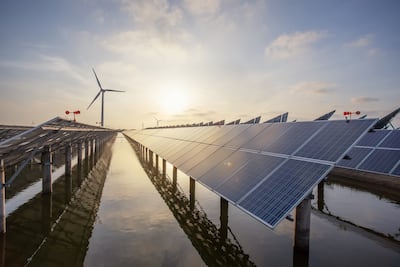State-controlled funds from Saudi Arabia, the UAE and Qatar have led global sovereign investments in the first six months of this year, with a broad focus on sustainable assets in a push to expand their portfolios and achieve their green investment goals, according to a new report.
Saudi Arabia’s Public Investment Fund, Abu Dhabi’s investment trio – Mubalda Investment Company, the Abu Dhabi Investment Authority and ADQ – and Qatar’s state investment arm the Qatar Investment Authority accounted for more than half of the total sovereign investments globally during the first half of this year, industry specialist Global SWF said in its latest market update.
The aggregate investment of the five funds reached $38.2 billion in 58 deals in the six months to the end of June. Sovereign funds globally invested $64.2 billion in 135 deals over the same period, the report said.
The splurge by GCC sovereign investors was more than double of what the Maple Eight – the group of largest Canadian funds – and was about eight times what the Singaporean funds spent during the six-month period.
“While the market uncertainty has invited global [sovereign] funds to be cautious, Gulf-based and particularly, Abu Dhabi-based funds, have received significant windfall from oil and are more active than ever,” the Global SWF report said.
A total of the $9.7 billion was spent by world’s sovereign investors on sustainable deals, about 30 per cent more than $7.2 billion spent on deals related to conventional energy and hydrocarbons sectors.
“The pressure of sustainability goals at organisation level is impacting the preferences of SOIs (sovereign investors),” the report said.
Last year, global sovereign investors poured $26.1 billion into green assets, which compared to $12.2 billion investments in the so-called black assets.
Mubadala’s investments in Australian, Indian and Japanese renewable energy assets as well as Norway’s sovereign fund Norges Bank Investment Management’s investments in British and Spanish wind and solar farms, helped in boosting green investments in the first half of this year.
The “oil five”, the five most active sovereign investors in the GCC which is home to a third of the world’s proven oil reserves, have been on a deal-making spree amid relatively higher oil prices.
Mubadala, which invests on behalf of the Abu Dhabi government in areas from artificial intelligence and clean energy to life science, mobility and mines and minerals and advanced manufacturing, has a portfolio of assets worth Dh1.11 trillion ($302.2 billion).
In May, the company whose assets under management rose by 9.5 per cent last year, invested in the biggest urea plant in Australia to explore the potential of green hydrogen in the country.
The same month it forayed for the first time in Japan’s renewable sector when it also became a cornerstone investor in PAG’s Asia Pacific renewable energy platform, which is primarily focused on supplying solar power to corporations across Japan.

In June, a subsidiary of Abu Dhabi’s Adia and global private equity investor Advent International said they are investing up to $3 billion for a minority stake in Fisher Investments, the independent money management firm founded by billionaire investor Ken Fisher.
Adia, which invests across asset classes such as equities, fixed income, infrastructure, private equity and property, is among the largest sovereign wealth funds in the world, with estimated assets of $993 billion, credit rating agency DBRS Morningstar said last year, citing data from Global SWF.
Like their sovereign peers in Abu Dhabi, Saudi Arabia’s PIF, which was the top global sovereign investor last year with $31.6 billion in aggregate value of deals, has actively sought deals this year.
The fund with $925 billion in assets also topped the SWF list of investors in the first half of 2024, with $10.2 billion of fresh capital deployment, according to Global SWF data.
ADQ, Mubadala and Adia have invested $9.2 billion, $8.7 billion and $8.2 billion respectively, while Qatar’s QIA has sought deals worth $1.9 billion in the first six of this year, the data showed.
Globally, the aggregate investment by both sovereign funds and public pension funds declined to $96.1 billion in the first half of 2024, down from more than $112 billion recorded in the same period last year.
Investment activity in the first half of 2024 “signals caution and the “state-owned investors continue to operate in an environment of high volatility and market uncertainty”, Global SWF said.


